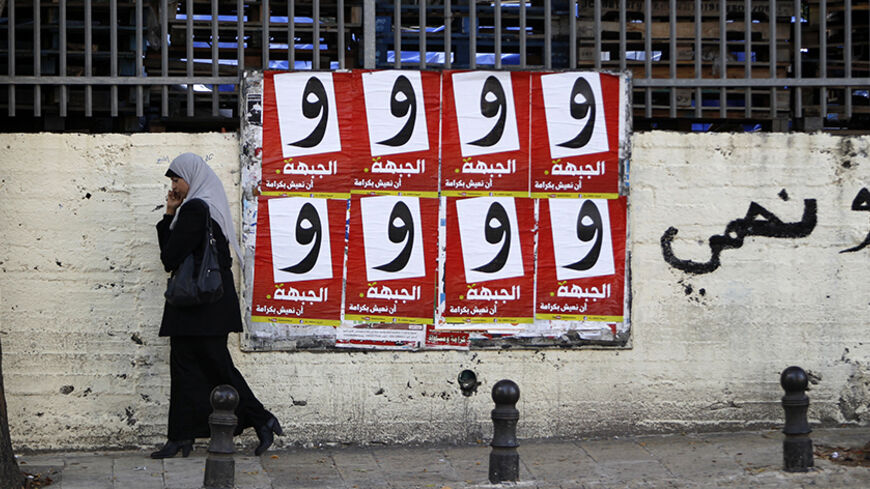“After we get 15 seats, I am planning on sending flowers to [Foreign Minister Avigdor] Liberman,” Knesset member Jamal Zahalka, the Balad faction chairman, told Al-Monitor. "We owe him for this achievement. He united the Arabs.”
Ever since the die was cast in the Knesset Dec. 3 and elections were moved up to March 17, the Arab Knesset members have been trying to find the right formula for merging themselves into one party. The need for this arose when the vote threshold was raised to 3.25% at the initiative of Liberman, the Yisrael Beitenu Party chairman. Liberman argued that the change was needed to increase governability, via reducing the number of parties in the Knesset and decreasing the dispersal of votes. But many people argue — especially in the Arab public — that its objective was to harm Arab representation in the Knesset.



